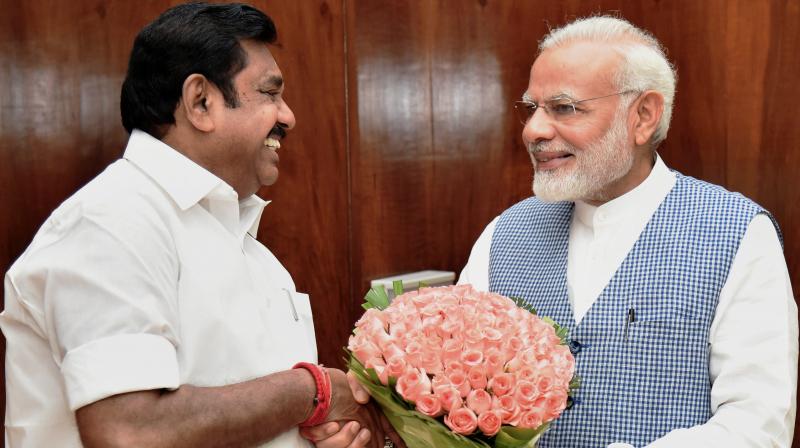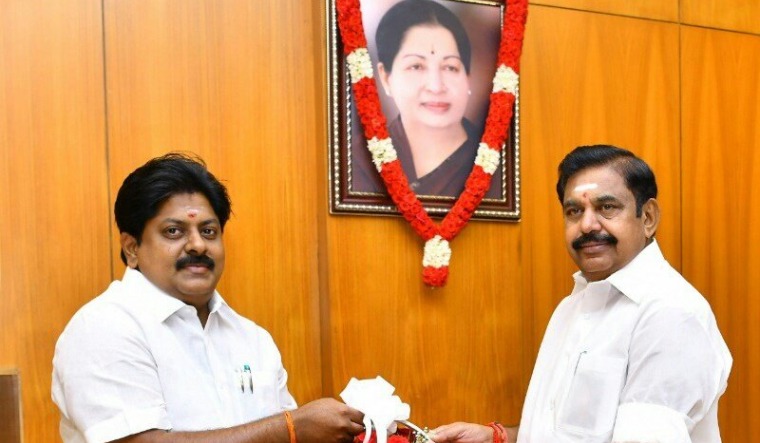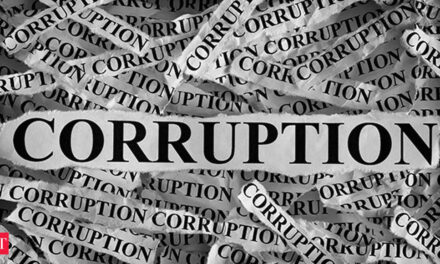ADMK government during the period between 2016-17 and 2019-20 Implementated Union government Ujwal Discom Assurance Yojana (UDAY) scheme in TANGEDCO has not helped the State power utility improve its finances or operational efficiency as its debt has gone up 52 per cent from Rs 81,312 crore in September 2015 to Rs 1.23 lakh crore on March 2020, shows the Comptroller and Auditor General Report tabled in the State Assembly on Tuesday.
Uday scheme envisaged reduction of gap between average cost of supply (ACS) and average revenue realised (ARR) to zero by 2018-19 and reduction in aggregate technical and commercial loss by 13.50 per cent by 2018-19.
UDAY, launched in November 2015, envisaged reforms aimed at improving the finances and operational efficiency of the State power distribution companies (discoms). However, the scheme has not achieved what it was intended to, the report said.
The State government, a party to the tripartite agreement of the Memorandum of Understanding (MoU) with the Central government and Tangedco, has not made good on the promise to fulfil the obligation to take over 75% of the debt. As it took over 34.38% of the debt,
This resuted Tangedco continued to be burdened with a loan of ₹30,502 crore and an additional interest burden of ₹9,150.60 crore during 2017-20.
The audit also noted that due to partial takeover of debt and failure to convert 25 per cent debt into bonds under Uday scheme, the discom continued to pay interest.
During the period between 2016-17 and 2019-20 “Tamil Nadu failed to convert TANGEDCO debt of Rs 7,605 crore into lower interest government-guaranteed bonds,” the report said.
The then ADMK State government also derailed the process of issuing bonds at a lesser interest for the remaining 25% of the debt of ₹7,605 crore of Tangedco. As a result, the utility was bearing a high cost of interest, amounting to ₹1,003.86 crore, the report said.
TANGEDCO paid overdue and penal interest of Rs 503.03 crore to three financial institutions, though it was not obligated to pay such overdue interest as per the (MoU).
Similarly, under the Uday scheme, the gap between ACS and ARR has to be brought to zero by 2018-19, but this was not adhered to and as a result discom reported a loss of Rs 12,623.41 crore that year.
The reasons include nonrevision of tariff to match the cost, short receipt of subsidy from the State, continued operation of thermal power stations with low Plant Load Factor (PLF), and purchase of power from costlier sources.
UDAY was aimed at reducing the cost of power generated by improving the plant load factor of the thermal power stations of Tangedco, thus cutting down on the power purchase from external sources.
But the report, comparing the data for the pre- and post-UDAY periods, points to the increasing cost of generation and a lower plant load factor of the thermal power stations than the target set by the Tamil Nadu Electricity Regulatory Commission.
The report says the cost of generation per unit had increased to ₹3.94 from ₹3.49 in 2015-16 and the cost of power purchased per unit went up to ₹4.94 from ₹4.32.
The plant load factor of the four main thermal power stations averaged only 56.80% against the norm of 80%. Tangedco has also failed to take the help of NTPC, which was mandated to improve the operational efficiency of the thermal power stations.
The report lays bare Tangedco’s inability to revise the tariff to increase the revenue to match the cost by filing tariff petitions with the Tamil Nadu Electricity Regulatory Commission every year. Except for the tariff petition filed once in January 2017 seeking a revision, it reduced the tariff for domestic consumers, causing a revenue shortfall of ₹6,574.97 crore and forgoing a portion of the tariff subsidy payable by the State to the tune of ₹6,505.69 crore.
To top it all, Tangedco had not reduced the transmission losses from 4.11% in 2015-16 to the target of 3.89% in 2019-20, owing to the delay in the commissioning of substations and transmission lines.
The delay in consumer indexing and geographic information system mapping of losses by March 2020, due to poor supervision and monitoring at the top level, prevented UDAY from making any operational and financial impact on Tangedco.
The report also faulted TANGEDCO for flouting Central Electricity Authority norms and reporting incorrect AT&C loss.
It stated that TANGEDCO did not exclude the wheeling units as input energy as prescribed by Central Electricity Authority.









